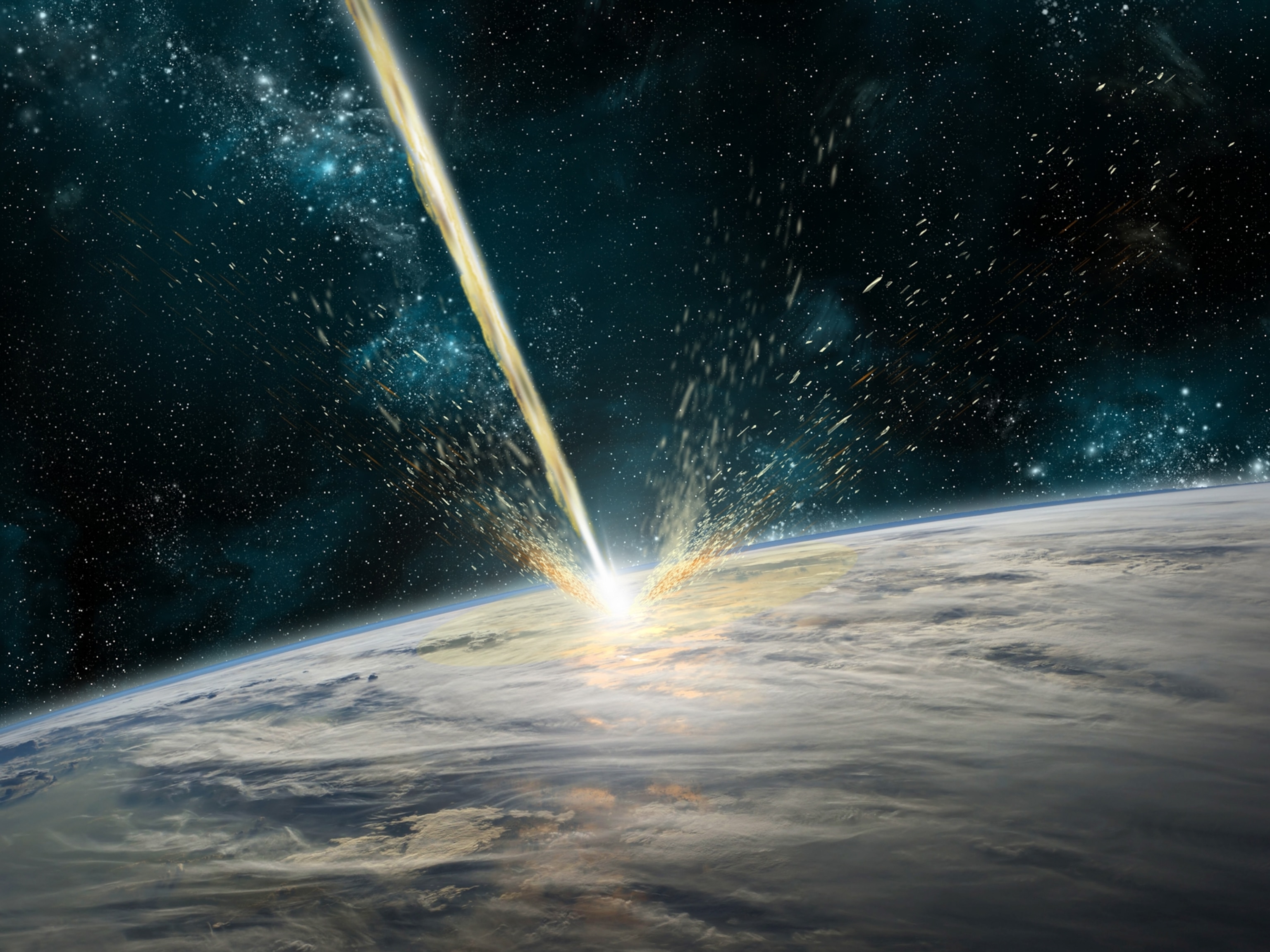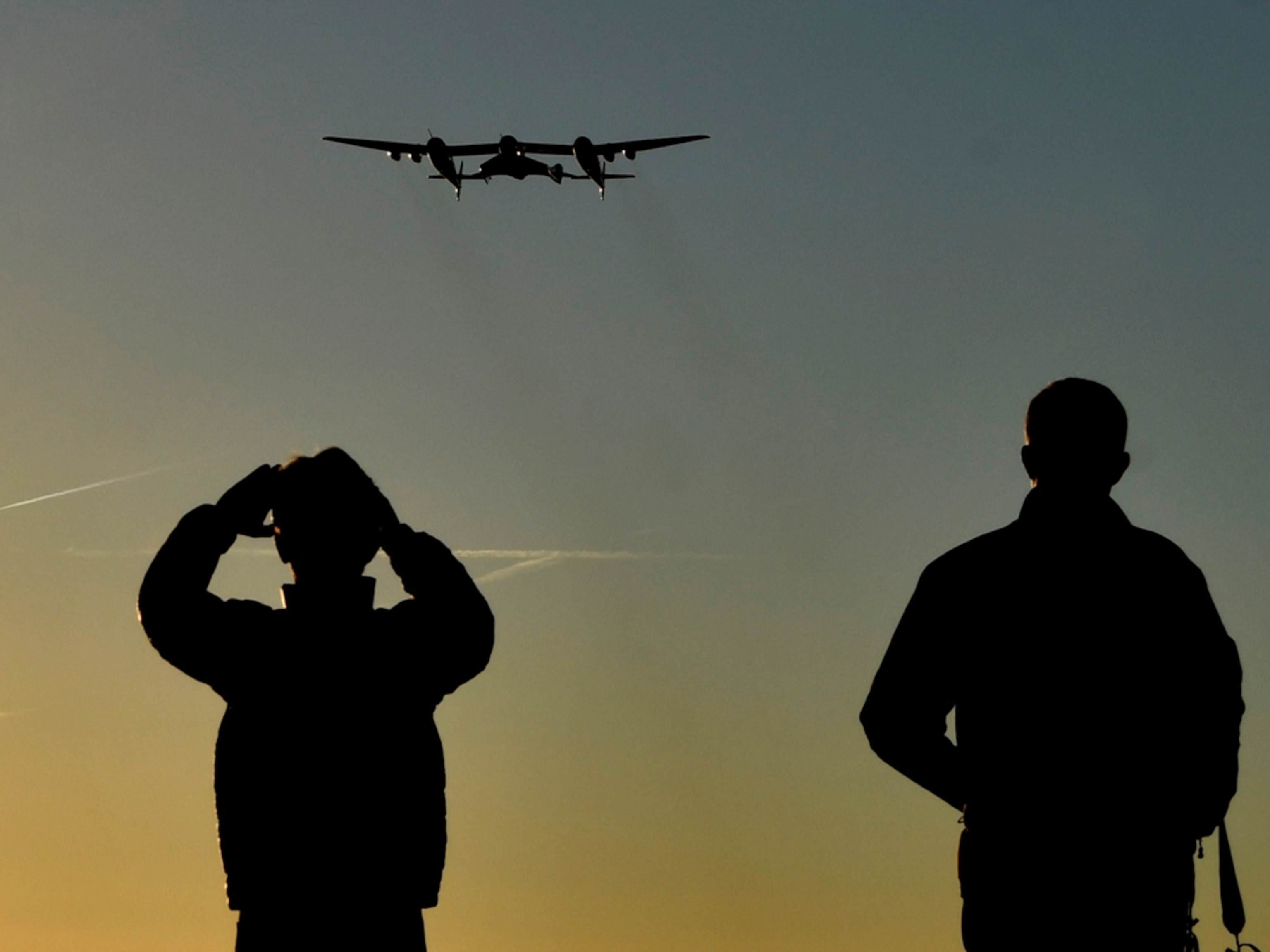
Bezos is just the latest millionaire to go into space
Why just the rich? They've got the itch, and their scratch has helped keep crewed space exploration alive
This is an adaptation of an essay from our daily newsletter series. Want this in your inbox? Subscribe here.
Victoria Jaggard is SCIENCE Executive Editor at Nat Geo.
________
I have a confession: I am a space nerd who never wants to go to space. I am terrified of heights, and I don’t do well in cramped spaces, so the more I learn about what it takes to get into orbit, the less appealing it seems. Unsurprisingly, though, plenty of more adventurous types have been game to sail past the stratosphere—including several millionaires willing to pay for the privilege.
This week, Amazon and Blue Origin founder Jeff Bezos announced his intention to head into space aboard his company’s New Shepard rocket during its first crewed flight in late July. The New Shepard launch system is a suborbital hop: The rocket lifts a crew capsule just above the Kármán line, 62 miles (100 kilometers) up, which marks the beginning of space. Participants will experience a few minutes of weightlessness before the capsule parachutes back to Earth. If all goes to plan, Blue Origin hopes to send droves of space tourists up for the thrill ride of a lifetime. The company has yet to reveal how much tickets will cost, but Bezos is auctioning off a third seat on his upcoming test flight, and the bid currently stands at $3.8 million.
The concept of space tourists is nothing new, with past passengers making it as far as the International Space Station. Investment management tycoon Dennis Tito was the first person to fund his own trip to space in 2001, reportedly paying $20 million to ride with two cosmonauts aboard a Russian Soyuz spacecraft. The move prompted criticism at the time—sending a private citizen to orbit just for the thrill of it is quite an indulgence, after all, and one only available to the ultra-wealthy. But no matter who pays for a Soyuz seat, the money has helped offset the costs of operating the vehicles, which have been the workhorses of human space travel since the 1960s.
After the U.S. space shuttle program ended in 2011, the Soyuz became the only way to get astronauts to the ISS, and opportunities for space tourists dried up. That’s why commercial spaceflight could be a gamechanger in this arena. With the SpaceX Falcon 9 rocket and Dragon rocket and crew capsule now sending astronauts to the ISS, too, there’s once more room in the wagon for anyone who can pay their way, and private citizens may be headed to the space station as early as next year. At the same time, Blue Origin and suborbital competitor Virgin Galactic at last seem ready to send people skyward on their respective vehicles.

Critics of space tourism are quick to note the extreme cost as well as the potential environmental consequences. In its defense, Blue Origin is already flying scientific payloads, which benefits NASA and other research institutions that want to find out, for example, how well a 3-D printer works in zero G. And in theory, the company’s reusable vehicles should bring the cost down once the flights are proven safe and can start happening with regularity.
For my money, the more surprising argument is how many people aside from professional astronauts and the mega-rich really want to go. According to a 2018 Pew Research Center survey, I am not alone in my apathy toward recreational spaceflight, with up to 58 percent of U.S. adults saying they have no interest in traveling to space. As Christine Bednarz reported, “stated concerns ranged from expensive costs, health worries, and general fear.”
Still, space tourist pioneer Dennis Tito makes a heartfelt argument, if you have the itch—and the scratch. "My dream was to fly in space before I die," Tito told Space.com in 2011. "The thing I have taken away from it is a sense of completeness for my life—that everything else I would do in my life would be a bonus."
Related Topics
You May Also Like
Go Further
Animals
- This ‘saber-toothed’ salmon wasn’t quite what we thoughtThis ‘saber-toothed’ salmon wasn’t quite what we thought
- Why this rhino-zebra friendship makes perfect senseWhy this rhino-zebra friendship makes perfect sense
- When did bioluminescence evolve? It’s older than we thought.When did bioluminescence evolve? It’s older than we thought.
- Soy, skim … spider. Are any of these technically milk?Soy, skim … spider. Are any of these technically milk?
- This pristine piece of the Amazon shows nature’s resilienceThis pristine piece of the Amazon shows nature’s resilience
Environment
- This pristine piece of the Amazon shows nature’s resilienceThis pristine piece of the Amazon shows nature’s resilience
- Listen to 30 years of climate change transformed into haunting musicListen to 30 years of climate change transformed into haunting music
- This ancient society tried to stop El Niño—with child sacrificeThis ancient society tried to stop El Niño—with child sacrifice
- U.S. plans to clean its drinking water. What does that mean?U.S. plans to clean its drinking water. What does that mean?
History & Culture
- Meet the original members of the tortured poets departmentMeet the original members of the tortured poets department
- Séances at the White House? Why these first ladies turned to the occultSéances at the White House? Why these first ladies turned to the occult
- Gambling is everywhere now. When is that a problem?Gambling is everywhere now. When is that a problem?
- Beauty is pain—at least it was in 17th-century SpainBeauty is pain—at least it was in 17th-century Spain
- The real spies who inspired ‘The Ministry of Ungentlemanly Warfare’The real spies who inspired ‘The Ministry of Ungentlemanly Warfare’
Science
- Here's how astronomers found one of the rarest phenomenons in spaceHere's how astronomers found one of the rarest phenomenons in space
- Not an extrovert or introvert? There’s a word for that.Not an extrovert or introvert? There’s a word for that.
- NASA has a plan to clean up space junk—but is going green enough?NASA has a plan to clean up space junk—but is going green enough?
- Soy, skim … spider. Are any of these technically milk?Soy, skim … spider. Are any of these technically milk?
Travel
- What it's like to hike the Camino del Mayab in MexicoWhat it's like to hike the Camino del Mayab in Mexico
- Is this small English town Yorkshire's culinary capital?Is this small English town Yorkshire's culinary capital?
- This chef is taking Indian cuisine in a bold new directionThis chef is taking Indian cuisine in a bold new direction




